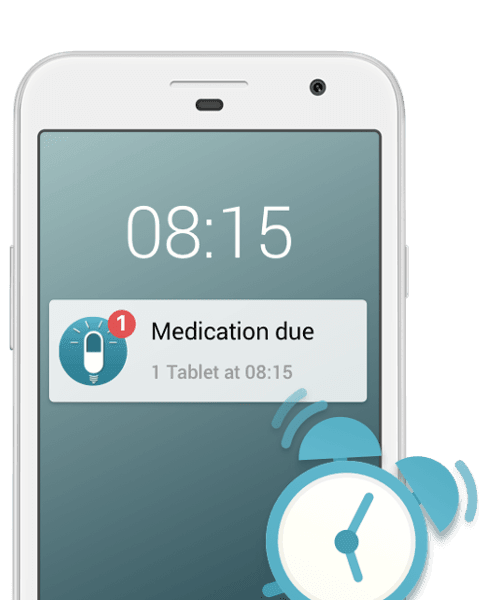What can a 4,000-year-old mummy tell us about heart disease? And how can a daily dose of laughter improve your health? We discover three fascinating facts about cardiovascular diseases, the science behind them, and how they can help everyone live with a healthier heart.
Atherosclerosis in Ancient Egypt
Amanit will celebrate her 4,000th birthday next year.
She was one of the 52 Egyptian mummies that took part in a rather fascinating study published in 2011, investigating the prevalence of atherosclerosis in the ancient civilization.
Atherosclerosis is the build-up of fatty substances in the arteries that is the underlying cause of many heart diseases.
Throughout the different eras spanning two and a half millennia, the ancient Egyptians are generally believed to have been a physically capable bunch.
The prevalence of physically demanding jobs such as farming and a penchant for sports helped keep the population fit and strong.
Their diet largely consisted of grains from bread and beer, fruit, vegetables, legumes, and a moderate amount of meat and dairy. By modern standards, “the average ancient Egyptian citizen likely had an excellent diet.”
Tobacco was not available at the time, either.
Their lifestyle, therefore, avoided many of the commonly-quoted risk factors for atherosclerosis.
It would be reasonable to assume that the modern lifestyle, packed as it is with processed foods and desk jobs, is largely to blame for atherosclerosis and the subsequent conditions such as coronary heart disease and heart attacks.
Yet, CT scan performed on Amanit and her 51 compatriots found probable or definite atherosclerosis in 20 of them. Given that vascular tissue was not identified in eight of the subjects, thus discounting them, the prevalence is a rather high 45%.
The mummies were of a variety of ages when they died, and the researchers estimated that the probability of having atherosclerosis increased by nearly 10% for each year of advancing age.
“Ah!” you may say, “but many of the best-preserved mummies from ancient Egypt, and indeed many of those used in the study, are of priests, kings, queens, and princesses. Being high on the social pyramid, their diet was richer in saturated fats than that of citizens such as farmers, as they ate beef, wildfowl, and other such foods. As such, these results do not represent the diversity of the ancient Egyptian civilisation.”
Quite right. However, the same group of researchers expanded on the study a couple of years later, including mummies from ancient peoples of Peru, southwest America, and Alaska.
Other posts you may be interested in on the MyTherapy blog:
- 8 Facts You Should Know About the Most Common Cardiovascular Diseases
- 3 Diets for a Healthy Heart: Which is Right for You?
In all cases atherosclerosis was identified, even in the Unangans people of the Aluetian Islands, whose largely-seafood diet would not be considered a high-risk one.
“So,” you may say, “does that mean all current guidelines are nonsense and lifestyle choices play little-to-no role in the development of atherosclerosis?”
Well, no. There is overwhelming evidence that diet and lifestyle are hugely important in one’s risk of developing atherosclerosis and subsequent heart diseases. Suggesting otherwise would be irresponsible.
And, as the researchers fully acknowledge, there are significant limitations in performing studies on bodies that are thousands of years old. For example, the prevalence of hypertension and diabetes, both risk factors for atherosclerosis, cannot be determined.
It is also noted that infection diseases, trauma, and famine were the most common causes of death.
The authors ponder the possibility that genetic adaptation caused an inflammatory response that was beneficial against infection during childhood and reproductive years. Such a response, we now know, would likely advance the development of atherosclerosis later in life.
So, no, the study does not challenge the accepted link between lifestyle choices and the risk of heart diseases – nor do its authors claim it does.
What this study does do, in their words, is raise “intriguing questions regarding the nature and extent of human predisposition to the development of atherosclerosis.”
I’ll Tell You Why… You Don’t Like Mondays
Rainy Days and Mondays, Monday Morning Blues, I Don’t Like Mondays… it seems musicians are not particularly fond of the first day of the working week, and they are not the only ones.
Not only is the Monday morning alarm demoralizing for plenty of people, it also signals the riskiest time of the week for heart attacks.
A Swedish study published in the American Heart Journal last September analysed heart attack data from over 156,000 hospitals, recorded between 2006 and 2013.
Winter – Christmas and New Year in particular – was the riskiest time of year, while fewest heart attacks were recorded in July.
Regardless of the time of year, Mondays were up to 20% risker than other days of the week. The morning hours between 5 a.m. and 10 a.m. are the peak time of day for heart attacks.
The stress of returning to work is believed to be a contributing factor to the phenomenon. Quite how stress is linked to heart attacks and other cardiovascular diseases is a subject of ongoing research.
However, it seems beyond doubt that the connection is real.
Stress is linked to high cholesterol levels and high blood pressure, and people who are frequently stressed are less likely to exercise, but more likely to smoke, overeat, and consume more alcohol.
Alcohol may play another key role, inclined as many are to overindulge at the weekend.
A Scottish study found a greater number of patients were admitted for heart disease on Mondays over a 10-year period, similar to the previously mentioned studies.
The authors specifically highlighted the possibility that binge drinking was at least partly responsible.
That theory is supported by research led by Elizabeth Mostofsky at the Harvard T.H. Chan School of Public Health, which investigated the short-term effects of excessive alcohol consumption.
They found that while regular, moderate alcohol consumption had health benefits, drinking a large quantity in a short space of time increased one’s risk of heart attacks the following day.
Heavy drinking throughout the week increased the risk for the entire subsequent week.
Ultimately, it is probably a combination of circumstances coming together that make Monday morning such a risky time of week for your ticker.
To make matters worse, heart attacks that occur between 6 a.m. and noon are more severe, according to research published in the journal Heart.
Over 800 heart attack patients from the Hospital Clinico San Carlos in Madrid between 2003 and 2009 were analyzed, and a higher level of tissue damage was detected in those whose heart attacks occurred in the morning.
“Overall, there is an expected increase of about 20% in infarct size (dead tissue) in patients with heart attack onset in the dark-to-light transition period compared with any other time of day.”
This may be attributed to the body’s natural clock – or circadian rhythm – which influences a variety of cardiovascular functions.
The authors suggest that one such function affects the fluctuation of certain proteins that act as the body’s defence mechanism in the event of a heart attack, and the morning is when this defence is most vulnerable.
All of this may sound rather negative, and probably does little to endear you to Monday mornings. The good news, however, is that there is an enjoyable way of mitigating your risk of heart attacks…
Heart Disease: A Laughing Matter?
The fact stress increases your risk of a heart attack is testament to the power your emotions can have on your physical wellbeing.
Happily, it works both ways.
It seems that laughing helps expand your endothelium – the tissue that forms the inner lining of your blood vessels – which subsequently improves blood flow.
Researchers from the University of Maryland showed 20 people – all of whom were healthy, non-smokers – clips from a laughter-inducing film. Another 20 were shown clips from a distressing one.
Blood flow was reduced in 14 of the 20 watching the distressing film, by an average of 35%. Conversely, blood flow improved in 19 out of 20 volunteers watching the funny film, by an average of 22%.
“The magnitude of change we saw in the endothelium is similar to the benefit we might see with aerobic activity, but without the aches, pains and muscle tension associated with exercise.”
Those were the words of Michael Miller, M.D., who led the study.
While he stressed that laughter is not a replacement for exercise, Dr. Miller suggested that 15 minutes of laughing per day can improve the health of your cardiovascular system.
Such results are replicated in a similar study that measured the effects of laughing and stress on the blood flow and arterial stiffness, both of which are predictors of cardiovascular risk.
It, too, concluded that laughing has a beneficial effect regarding arterial stiffness, which subsequently improves blood flow.
Researchers also noted lower levels of stress-related hormones.
Lee Berk, DrPH., an associate professor at Loma Linda University in California, has dedicated much of his career to investigating how emotions and laughter influences the body.
According to Dr. Berk, the effect laughing has on hormones helps more than just the heart.
“It reduces blood levels of detrimental stress hormones cortisol, epinephrine, and other substances,” he told Spectrum, “And surprisingly, when those stress hormones are reduced, numerous immune system components are allowed to re-optimize and function more normally.”
The benefits of laughing aren’t short-lived, either, and can last around 24 hours.
So, whatever it is that tickles you, making an effort to laugh every day can have tangible long-term health benefits.
In short: laugh regularly and laugh a lot. Especially on Monday mornings.
Take a look at some of the other posts on the MyTherapy blog:



